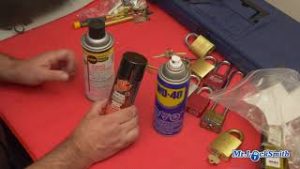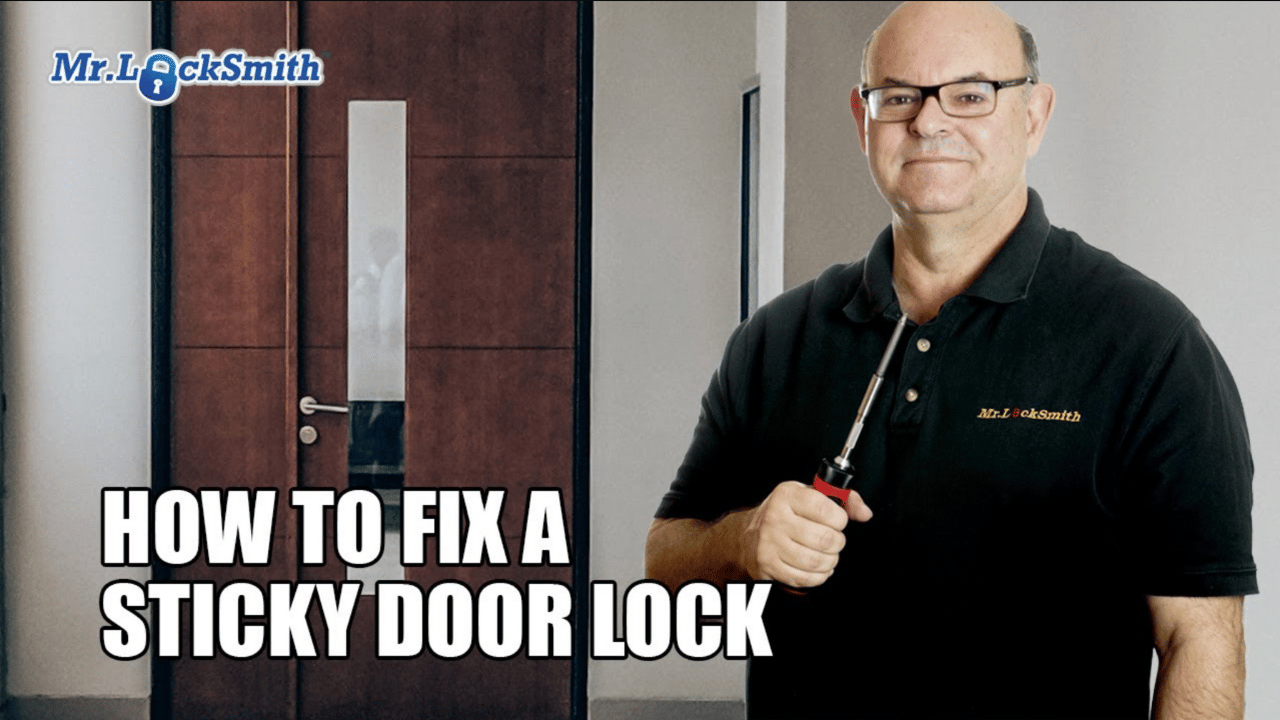Sticky Door Locks | A Simple Solution: Learn how to fix a sticking door lock using a variety of lubricants. Mr. Locksmith discusses different types of lubricants, including tri-flow, WD-40, and other silicon-based options, detailing their benefits and appropriate usage for unjamming and lubricating locks. Additionally, the video demonstrates the proper application techniques for lubricating both the lock and door hinges to ensure smooth functioning. Don’t forget to subscribe to the channel and visit the host’s website for more locksmith training and advanced entry techniques. (Source: Terry Whin-Yates)
Source: Mr. Locksmith Youtube http://www.youtube.com/user/24hrMrLocksmith
Sticky Door Locks | A Simple Solution
Mr. Locksmith Automotive (604) 259-7617
Sticky Door Locks | A Simple Fix from Mr. Locksmith
Is your door lock sticking, jamming, or just not turning smoothly? Don’t worry—fixing a sticky lock is easier than you might think. At Mr. Locksmith, we’ve seen thousands of stuck locks, and today we’re going to show you a simple way to get your door working like new again.
What Causes a Sticky Lock?
Sticky locks are usually caused by dirt, dust, or lack of lubrication. Over time, grime builds up inside the lock mechanism, causing resistance when you turn the key. Sometimes, worn-out keys or hardware misalignment can also contribute, but the first thing you should try is proper lubrication.

What Lubricant Should You Use for Locks?
Avoid using oil-based lubricants like motor oil or heavy grease—they attract more dirt and will eventually make the problem worse. Here’s what we recommend:
✅ Tri-Flow
Tri-Flow is a silicon-based lubricant and our go-to solution. It’s designed specifically for locks and doesn’t gum up over time.
⚠️ WD-40 (Standard)
Many people reach for regular WD-40. While it’s a great penetrating oil, it’s not ideal for long-term lubrication—it’s meant to loosen stuck parts, not keep them running smoothly. That said, it can be useful as a quick fix to unstick a jammed lock.
🆕 WD-40 Silicone Lubricant
This newer version is water-resistant, silicone-based, and quick-drying. It’s promising and may work well for lock maintenance. We’re testing it out in the field and will report back soon.
Other Options:
-
Houdini Lock Lube
-
3-in-One Lock Dry Lube
-
Graphite (for dry climates)
How to Lubricate a Sticky Door Lock
-
Spray a small amount of lubricant directly into the keyhole. A short burst is all you need.
-
Insert and remove your key a few times to spread the lubricant through the lock mechanism.
-
Wipe off any excess lube with a cloth.
-
Apply a dab to the bolt (the metal piece that moves in and out of the door frame).
-
Lubricate the hinges while you’re at it. A small amount on each hinge pin will quiet creaks and ensure the door swings properly.
💡 Pro Tip: Don’t overdo it. Too much lubricant can attract dust and grime.
Keep It Smooth
Regular maintenance of your locks ensures they last longer and perform better. A little lube once or twice a year can prevent future issues and avoid costly repairs.
If lubrication doesn’t fix the issue, or if your key still sticks, you might have a more serious problem. Contact Mr. Locksmith for professional lock repair, key extraction, or rekeying services. Source: Terry Whin-Yates Mr. Locksmith Linkedin
Mr. Locksmith Automotive (604) 259-7617
For Updated Locksmith Workshop Training Dates and Location go to https://mrlocksmith.com/locksmith-workshop-training-dates/
YouTube Creator Award Silver Button: Visit Mr. Locksmith YouTube with 200,000+ Subscribers: http://www.youtube.com/user/24hrMrLocksmith
For further info go to Mr. Locksmith Training or email: Terry@mrlocksmith.com
Contact Terry Whin-Yates email: Terry@MrLocksmith.com
Online Locksmith Training https://mr-locksmith-training.thinkific.com/courses/locksmith-course-Become-a-Locksmith
How to Open Sentry Safes: https://mr-locksmith-training.thinkific.com/courses/open-sentry-electronic-safes-models-s-series-123-four-4-bolt-fire-resistant-safes
For LOCKSMITH TRAINING go to:
https://mr-locksmith-training.thinkific.com/



